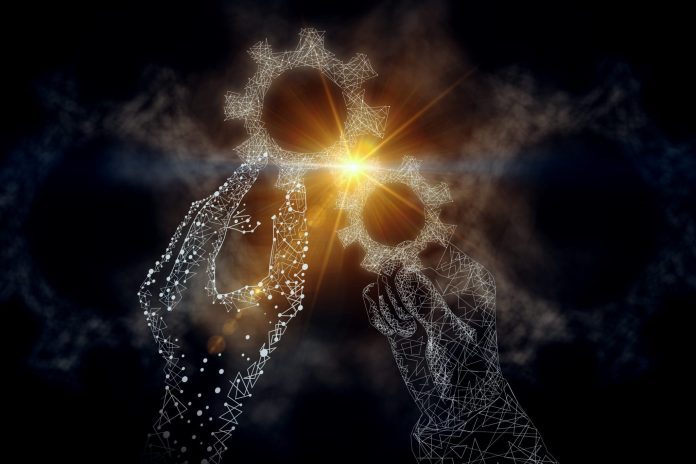Nokia CEO on Fourth Industrial Revolution: “If ever something was worth working, it’s this.”
Harnessing steam to drive mass production; tapping electricity to globalize manufacturing; widespread computing–all past industrial revolutions that ushered in sea changes in the way people live, work and communicate. And now, according to conversations this week at the World Economic Forum in Davos, Switzerland, we’re poised to enter a Fourth Industrial Revolution marked by ubiquitous, high-speed connectivity that blends together cyber and physical systems.
Verizon Communications CEO Hans Vestberg highlighted the role the Fourth Industrial Revolution will play in achieving environmental sustainability in a WEF blog post published Jan. 22. “The more I’ve learned about the coming generation of high-speed, highly interactive technologies, the more convinced I’ve become that they could help the human race buy crucial time in the race against catastrophic worldwide climate change,” the former Ericsson CEO wrote.
Vestberg called out 5G, the internet of things, autonomous devices and 3D printing as poised to help reduce carbon output and optimize the use of industrial and agricultural resources. “The bottom line: in the fight against man-made climate change, 4IR could make a meaningful different—and it can’t come soon enough.”
Nokia CEO Rajeev Suri, who has focused public comments on the promise of Industry 4.0 for several years, also blogging during the WEF, noted that the transition from LTE to 5G is much more significant than previous cellular upgrade cycles, and will power the Fourth Industrial Revolution. “It will melt the boundaries—and the limitations—of large, economy-defining industries, transforming how they look and what they produce. And it will do that because it will be powered by 5G.”
He continued: “It possesses unique characteristics that make it socially and economically transformative: low latency (in other words, almost imperceptible lag when carrying out remote orders); fast speeds (around 10 times faster than today’s networks); connection capability (enabling up to 1 million linked devices per square [kilometer]); and unparalleled reliability (allowing new precision-based applications).”
The last time I spoke with Suri, during Mobile World Congress Americas in Los Angeles, he told me to read Michio Kaku’s bestselling “The Physics of the Future.” I did. And the renowned theoretical physicist sees the current generation of humans as tasked with creating (or not) a planetary civilization. “This transition is perhaps the greatest in human history,” he wrote. “In fact, the people living today are the most important ever to walk the surface of the planet, since they will determine whether we attain this goal or descend into chaos. Perhaps 5,000 generations of humans have walked the surface of the earth since we first emerged in Africa about 100,000 years ago, and of them, the ones living in this century will ultimately determine our fate.”
Looking back at the sweep of human civilization, Kaku hones in on three waves of massive change, the first coming after the Ice Age. People began to trade a nomadic existence for a more stationary lifestyle. The domestication of animals changed energy dynamics from what a person can accomplish with simply their hands to what a person can accomplish with one horsepower, setting the stage for agriculture. This stability led to wealth which led to science, mathematics, taxation, militaries, bondage. The next major wave was the First Industrial Revolution–steam-powered machines supporting mass production.
“Finally,” Kaku wrote, “we are in the third wave, where wealth is generated from information. The wealth of nations is now measured by electrons circulating around the world on fiber-optic cables and satellites, eventually dancing across computer screens on Wall Street and other financial capitals. Science, commerce, and entertainment travel at the speed of light, giving us limitless information anytime, anywhere.”
And this level of connectivity and access to information will underlie the coming Fourth Industrial Revolution. And 5G is the first step, Suri wrote, but, “More are necessary. Governments in particular need to step on the gas and prioritize 5G adoption. But if ever something was worth working for, it’s this. I firmly believe that the sooner governments, businesses and individuals have access to 5G, the sooner the Fourth Industrial Revolution can help people all over the world enjoy safer, happier, more productive lives.”

